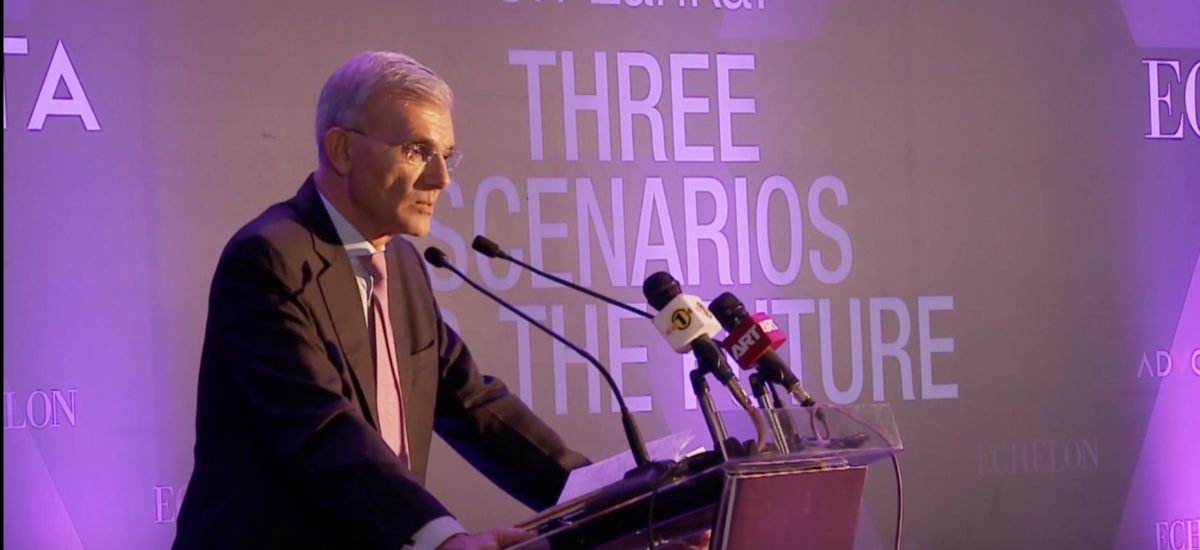An expected economic take-off has not happened two years into the change of government says Prof. Razeen Sally, chairman of the Institute of Policy studies in Sri Lanka.
Delivering a public lecture last week at the Advocata Institute, Prof. Sally says that the window for serious economic reforms is narrowing, and Sri Lanka is on the verge of missing another ‘bus’ towards the road to economic prosperity. “Sri Lanka never misses an opportunity to miss an opportunity” lamented the Sri Lankan-born economist, who has been an outspoken critic of some government policies in recent months, particularly price controls and ad-hoc policy changes.
The present government initially did much worse than the previous government in the area of economic policy warned, Prof. Sally, saying only the recent IMF conditions managed to bring in at least some fiscal discipline. Monetary policy has also been similarly mismanaged and politicized throughout the last decade culminating in the scandal in the bond market which finally led to the appointment of an independent governor.
“The Sri Lankan economy has a competitiveness problem. It has a productivity problem. The way to raise productivity and raise competitiveness is to have a stronger private sector and to be open for much more globalisation in Sri Lanka. That’s more trade and investment,” explains Sally.
To implement those policies change is needed. First set of policies that need changing are the ease of doing business reforms that has been promised. More things online. Easier and faster approvals and not going through multiple agencies, etc. Secondly, in trade Sri Lanka has a “shockingly low trade-to GDP ratio” according to Professor Sally. The trickle of foreign investment that the country receives are not towards exports but domestic projects warns the economist, who says the export basket of the country hasn’t changed much over the last many years. To change that Sri Lanka needs trade and investment liberalization. These are the easier reforms that are needed. Yet a politically more difficult set of reforms in the domains of reforming state enterprises, land reform, labour markets, etc. is needed to increase the overall competitiveness of the economy.
“It is really striking what little competition there is in the Sri Lankan economy, wherever one looks. Most markets are tied up by little monopolies and oligopolies and the commanding heights are occupied by the Dhammika Pereras and Harry Jayawardene’s of this world with their political connections. Who are sitting on very comfortable rents. And of course the last thing they want is competition. There is collusion between these commanding heights and the political class”. This collusion besides being bad for competitiveness and production in the economy, “screws the consumer” according to Prof. Sally. What’s needed is a fairly simple reform agenda, one that has unfortunately not been forthcoming in the last two years.
A final worry for Prof. Sally, who spends most of his time teaching at the National University of Singapore, is the recent slide towards overdependence on Chinese State-owned companies for investment. Investments from China, which should be welcomed, need to be balanced out by other private sector investment from the West and India, to stop Sri Lanka from being unduly dependent on China. “Chinese state-owned companies practice a different kind of capitalism” warns Prof Sally. “We should know what kind of rules this kind of Capitalism plays by, and there’s evidence of how this operates in East Asia. It is by buying up political and business elites. Do we really want to see that happen in Sri Lanka?”
If the reform opportunity is squandered yet again, then Sri Lanka may continue its current economic drift. If this scenario continues, outside the narrow elite, ordinary Sri Lankans will be deprived of opportunity. And that cannot continue on forever according to the economist. If Sri Lanka does not achieve 6-8% economic growth, instead of the current 4-5% real incomes outside this narrow elite would not go up. “If the economic pie is static. It means more political conflicts. More distributional conflicts. That’s a lesson of history. If people’s aspirations are not met they will fight over the slices of the pie and in Sri Lanka this will mean ethnic, racial and religious fights”.
Failure to deliver growth and pave way for a take-off scenario would mean Sri Lanka will likely relapse back into authoritarian politics according to Prof. Sally. In this scenario, a charismatic strong-man comes along, wins a presidential election and comes in to clean the house. It means a slide back to illiberal democracy.
Sri Lanka is currently in a drift scenario, a long way off from a take-off scenario but dangerously close to a relapse scenario according to Razeen Sally.
The Q&A and other Advocata Lectures can be viewed on their YouTube channel.
Visit Advocata.org for more updates on their continuing public lectures and commentary.

